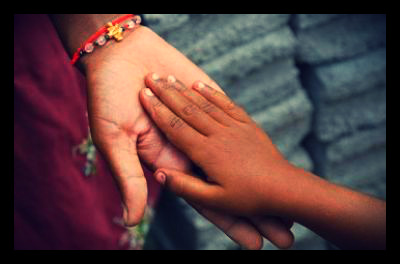5 Must-Reads for Young Humanitarians

The best way to lean about humanitarian work is to participate in it. But for those who are still getting their feet wet or are unsure where they fit in, the following books are must-reads to offer inspiration and possibly get your blood burning enough to climb on board whole-heartedly.
Half the Sky: Turning Oppression into Opportunity for Women Worldwide
By Nicholas D. Kristof & Sheryl WuDunn
Written by Pulitzer Prize-winning husband-and-wife journalists Nicholas D. Kristof and Sheryl WuDunn, the book follows its authors’ belief that individual stories are more powerful for calling people to action than statistics. The book is set up in two parts, where the first half is a series of essays recounting Kristof and WuDunn’s research regarding the oppression of women in (mostly) the developing countries of the world, and the second is a call for action – complete with steps to be taken and records of what is already being done.
Humanitarian Alert: NGO Information and Its Impact on US Foreign Policy
By Abby Stoddard
Stoddard writes a convincing account of how NGOs, even those unfunded in the country of action, have the power to effect local state policy. Her book compares the negative and positive aspects of NGOs, sifting through to determine an estimation of usefulness. Humanitarian Alert promises “[a]n array of sources, from embassy telegrams to interviews with state and non-state actors, creat[ing] a compelling picture of how narratives and numbers in humanitarian crises help or hinder response.”
Enough: Why the World’s Poorest Starve in an Age of Plenty
By Roger Thurow & Scott Kilman
Written by two former Wall Street Journal reporters, Enough asks how it can be that there are people starving when we possess the tools and technology to feed everyone. With research and personal accounts from all over the world this book will make you rethink everything you thought you knew about how people are fed in the world today.
An Imperfect Offering
By James Orbinski
The memoir of the man who has become one of the world’s foremost humanitarian doctors, the book recounts the suffering and dispassion left unchallenged in the world today and carries Orbinski’s belief in “the good we can be if we so choose.” The Observer writes, “A lesser man could have capitulated. Not so Orbinski, for whom, one feels, celebrity of any kind is far less interesting than the central question with which he struggles in this compelling book: ‘How are we to be in relation to the suffering of others?’”
In the Eyes of Others: How People in Crises Perceive Humanitarian Aid
By Caroline Abu-Sada
The misconceptions about aid held by those who benefit from it can be baffling. By divulging many of these false beliefs, Abu-Sada alerts humanitarian aid groups from all over the world to improve the way they promote themselves to those they are trying to help. The misconceptions of those in crisis and the developing world can greatly hinder the work for groups such as Doctors Without Borders and Médecins Sans Frontières (MSF), but In the Eyes of Others Abu-Sada explains how best to avoid common confusion and promote the true purpose of an organization in ways that will be positively received by foreign communities.
Whether any one of these listed books suggests your true calling, they each have a lot to teach us about how foreign policy and aid are received by, and influence, those they are meant to help.
-Lydia Caswell
Sources: Farming First, Amazon, The Guardian
Photo: Innovation Story
